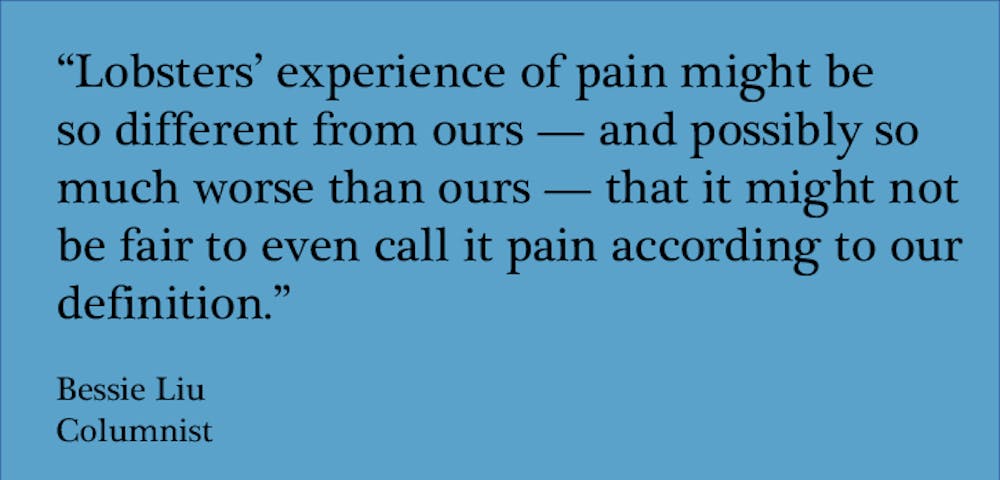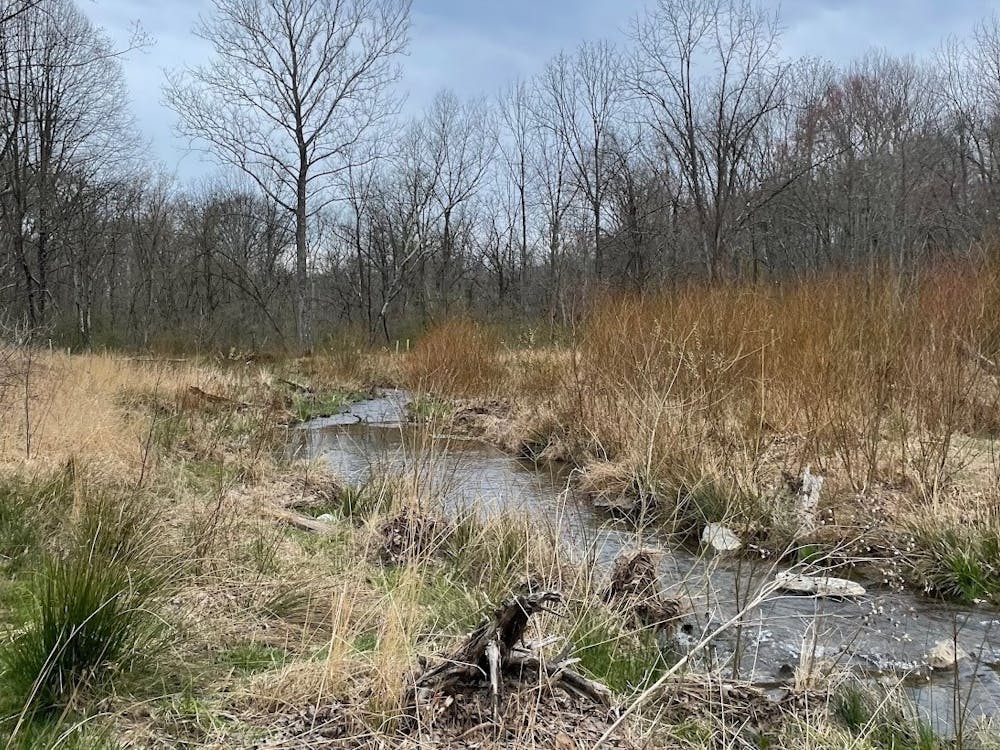
I don’t remember how I stumbled upon David Foster Wallace, but reading one of his essays was enough to pique my interest in the writer. In “Consider the Lobster,” Wallace explores a Maine lobster festival and its focus on mass lobster consumption — historically, biologically and ethically.
At first, this might sound boring, didactic, even “animal rights activist”-preachy. But it’s worth pointing out that in his essay, Wallace doesn’t simply ask the question of whether it’s okay for us to eat sentient creatures. He asks whether it is “all right to boil a sentient creature alive just for our gustatory pleasure,” causing the creature a great deal of pain before it finally dies.
In other words, does our boiling of lobsters cause them pain, and if so, does their perception of that pain mean that we are essentially causing them undue (for lack of a better word) torture?
Wallace follows up his experience at the lobster festival with a well-researched conglomeration of reasons suggesting that our treatment of lobsters may be unethical.
I will never be able to explain or summarize his essay and capture all of its elegance, but the crux of Wallace’s reasoning is that lobsters are able to feel and react to pain, and the fact that they struggle and try to escape while being boiled demonstrates that they have an interest in not experiencing that pain. In addition, because humans have the ability to form emotional associations with pain, we have evolved a certain amount of coping mechanisms to help deal with that pain. But lobsters have neither of those things.
The conclusion Wallace finally arrives at is that lobsters’ experience of pain might be so different from ours — and possibly so much worse than ours — that it might not be fair to even call it pain according to our definition.
But throughout his essay, Wallace is also able to maintain a strong narrative presence with readers through his self-deprecating remarks and randomly humorous footnotes, which is a skill that I’ve come to admire and a skill that makes readers care about a topic they might not otherwise care about.
In fact, as a sort of disclaimer, Wallace notes: “As usual, though, there’s much more to know than most of us care about—it’s all a matter of what your interests are.” He acknowledges that most people might not be all that interested in reading an essay about lobsters, especially if the essay itself reminds us of something we might not want to be reminded of on the regular: that we humans potentially inflict horrible, un-understandable pain upon these crustaceans by cooking them alive.
In writing “Consider the Lobster,” Wallace delves into a topic that people would likely consider briefly — in the moment, perhaps, while watching a lobster boil — but not give too much thought to otherwise. He himself acknowledges this fact with dry humor, saying “I’m not trying to give you a PETA-like screed here.”
My family once went into hysterics when one of the tilapia we’d gotten from the butcher’s started flopping around on my mom’s cutting board, when it was supposed to have been dead. I can understand why cooks would, as Wallace puts it, run away to spare themselves from having to watch the lobsters get boiled to death. It’s not a stretch to say that people feel uncomfortable when confronted with the live animal whose meat they are cooking or about to eat.
But perhaps my favorite moment of the essay is at the very end, when after Wallace has collected all this evidence seemingly suggesting that the way we cook and kill lobsters is inhumane, he steps back and says, “what I really am is confused.””
At the heart of his essay, he doesn’t lecture to us, condemn us or ask us to change our behavior. Instead, he asks us to examine why we are uncomfortable with confronting or questioning this behavior of ours. In a way, the fact that the author lays down the information for the reader and asks them to evaluate it for themselves is even more persuasive to me. Just seeing the level of attention and care Wallace has put into his essay is enough to convince anyone that his writing is worth reading.
From now on, at family gatherings, I’ll look down into the sink and glance down at the lobster, looking forlorn in its wet blue shell, its claws tied up, about to die, and I won’t be able to help but feel complicit in the suffering it is about to experience.
















Please note All comments are eligible for publication in The News-Letter.